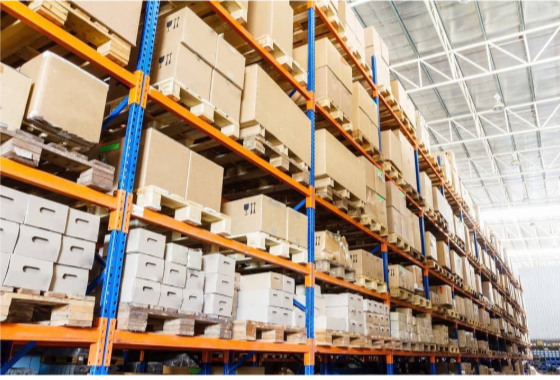
In today’s fast-paced business world, storing and handling products safely and efficiently is more important than ever. Companies dealing with pharmaceuticals, food, cosmetics, and other sensitive products must meet strict regulations to guarantee product quality and safety. This is where a GMP-certified warehouse plays a crucial role. By adhering to Good Manufacturing Practices (GMP), these warehouses help businesses maintain compliance while improving operational efficiency.
Understanding GMP Certification
A GMP-certified warehouse is a storage facility that meets strict standards for hygiene, handling, and documentation. GMP, or Good Manufacturing Practices, is a set of guidelines established by regulatory authorities to ensure that products are consistently produced and stored according to quality standards. These regulations cover all aspects of a warehouse, including temperature control, cleanliness, employee training, and record-keeping. By achieving GMP certification, a warehouse demonstrates its commitment to maintaining high standards and protecting the integrity of the products it stores.
Maintaining Product Safety and Quality
One of the main advantages of using a GMP-certified warehouse is the assurance of product safety and quality. These warehouses follow strict protocols to prevent contamination, damage, or deterioration of products. Temperature-sensitive items, such as pharmaceuticals or certain foods, are stored in controlled environments to ensure they remain safe and effective. Regular inspections and quality checks are conducted to maintain these standards. As a result, businesses can trust that their products will reach consumers in the best possible condition, which helps build brand reputation and customer trust.
Ensuring Regulatory Compliance
Compliance with national and international regulations is critical for businesses in regulated industries. A GMP-certified warehouse ensures that all operations meet the requirements set by authorities such as the FDA, EMA, or WHO. This includes proper documentation of all product movements, adherence to safety protocols, and regular audits. By partnering with a GMP-certified warehouse, companies reduce the risk of regulatory violations, fines, and product recalls. It also simplifies the process of regulatory inspections, as the warehouse already meets the required standards.
Enhancing Operational Efficiency
Beyond compliance, a GMP-certified warehouse improves operational efficiency. These warehouses use systematic processes for inventory management, storage, and retrieval, which reduces errors and saves time. Advanced tracking systems and organized layouts allow employees to locate and handle products quickly, minimizing delays in order fulfillment. Efficient workflows also reduce the risk of product loss or damage, which can be costly for businesses. By combining compliance with effective processes, GMP-certified warehouses create a smooth and reliable supply chain.
Training and Expertise
A key component of a GMP-certified warehouse is the trained and knowledgeable staff. Employees receive specialized training on GMP standards, safe handling procedures, and quality management systems. This ensures that everyone in the warehouse understands their responsibilities and follows best practices consistently. Skilled personnel not only maintain compliance but also contribute to the overall efficiency of operations. Their expertise ensures that products are handled correctly at every stage, from receiving to shipping.
Building Trust with Partners and Consumers
Working with a GMP-certified warehouse also strengthens business relationships. Suppliers, manufacturers, and distributors are more likely to trust a warehouse that meets GMP standards, as it demonstrates reliability and commitment to quality. Consumers also benefit indirectly, as the products they receive are stored safely and handled professionally. This trust can lead to stronger partnerships, better market reputation, and increased customer loyalty.
Conclusion
A GMP-certified warehouse is more than just a storage facility. It is a critical component of a business’s quality assurance and operational efficiency. By adhering to strict GMP standards, these warehouses ensure product safety, regulatory compliance, and streamlined processes. Businesses that choose GMP-certified warehouses not only protect their products but also enhance efficiency, reliability, and trust with partners and consumers. In a competitive market, such warehouses provide a vital advantage, making them an essential part of modern supply chain management.





